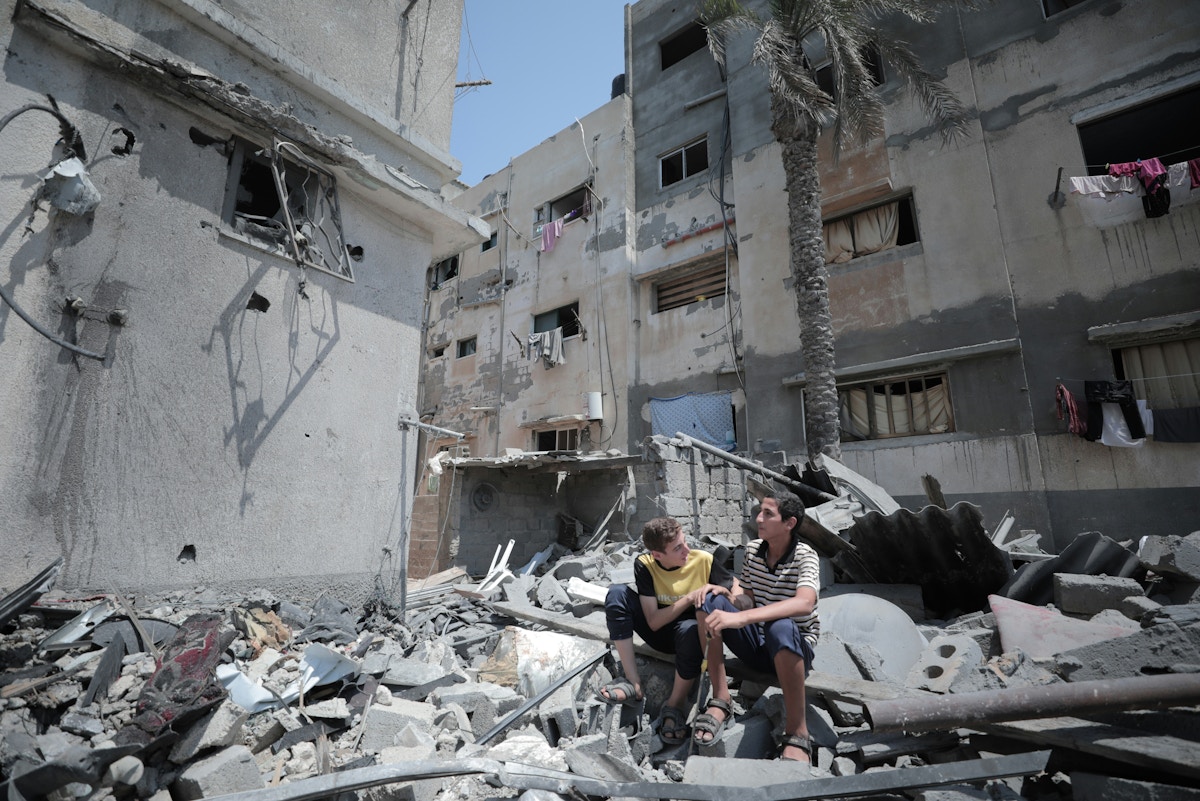Marko Kerac, clinical associate professor at the London School of Hygiene & Tropical Medicine, said children were vulnerable to the worst long-term effects because their organs are still developing.
“There are epigenetic switches, (or) changes to our genes, which are either switched off or on in those critical early years, and that’s why the very youngest, especially in the first 1,000 days, are affected,” he told Context.
“
People are exhausted, their physical reserves are depleted and this is confirmed by the increasing number of reported nutrition-related mortality and reports from medical doctors of the inability of trauma patients to heal from their wounds.
Marina Adrianopoli, technical lead for nutrition for the Gaza response, World Health Organization
“In many studies of survivors of famine or early malnutrition, we see increased risk of chronic diseases like heart disease, diabetes, high cholesterol (and) paradoxically a greater risk of overweight or obesity, and there are also mental health effects.”
Health officials in Gaza say 370 people, including 131 children, have died of malnutrition and starvation caused by acute food shortages, mostly in recent weeks.
COGAT, the Israeli defence agency that deals with humanitarian issues, said on Sunday that over the past week aid from more than 1,900 trucks, most supplying food, was distributed.
Aid agencies and foreign officials say more is needed.
On Sunday, a top UN official said there is a “narrow window” to prevent famine from spreading further and called on Israel to allow unimpeded aid delivery.
According to a global hunger monitor, hundreds of thousands of Palestinians are already experiencing or at risk of famine in areas including Gaza City, where Israel has launched a new offensive against the militant group Hamas.
Acute malnutrition weakens the immune system, leading to more infections like diarrhoea and pneumonia, which can be fatal, especially without access to safe drinking water and functioning health systems.
Malnutrition also affects the body’s ability to recover from injuries, like those inflicted by Israel’s attacks on people queuing at aid distribution points.
“We have something called an infection-malnutrition vicious cycle, and people who are even mildly malnourished, especially over longer periods, will become more vulnerable,” said Kerac.
“Even when children recover to the normal weight, they are still at a much greater risk of mortality and infections and also poor development … so they carry that risk into the months and even a year or two after malnutrition.”
Kerac cited studies into the Dutch Winter Hunger at the end of World War Two that found a link between pre-natal micronutrient deficiencies and neurodevelopmental schizophrenia or related personality disorders.
‘Cruel, depraved’ war
More than 64,000 Palestinians have been killed by the Israeli military in the last 23 months, according to local health officials.
Israel began its assault on Gaza after Oct. 7, 2023, when gunmen led by Hamas attacked southern Israel, killing some 1,200 people and taking 251 hostages, according to Israeli figures.
On Saturday, Save the Children said more than 20,000 children had been killed in the conflict, the equivalent of one child killed every hour on average.
It cited data released by the government media office in Gaza, which said about 2 per cent of Gaza’s child population had now been killed, including at least 1,009 children under the age of 1. Thousands more are missing or presumed buried under rubble.
“This war is a cruel, depraved and deliberate war on the children of Gaza and their future, a generation stolen,” Ahmad Alhendawi, Save the Children’s regional director for the Middle East, North Africa and Eastern Europe said in a statement.
“If the international community does not step up, we are facing the very real risk of the total annihilation of future Palestinian communities,” he added.
The world’s biggest academic association of genocide scholars has said Israel is committing genocide in Gaza.
Adrianopoli said nearly a third of the population in Gaza is “facing catastrophic conditions”.
The rate of deterioration in Gaza has been particularly shocking, when compared to other cases of famine in Sudan, South Sudan and Yemen, Adrianopoli said.
In those cases, rates of acute malnutrition were often already high before a crisis. However in Gaza, the rate of acute malnutrition was below 1 per cent before the Israeli assault, she said, making the situation there “unprecedented”.
Gaza’s malnourished children need ready-to-use therapeutic and supplementary food, and babies may need therapeutic formula. Those with severe acute malnutrition need medical treatment in hospital – but all of this is lacking.
Adrianopoli said that after nearly two years of war, “people are exhausted, their physical reserves are depleted and this is confirmed by the increasing number of reported nutrition-related mortality and reports from medical doctors of the inability of trauma patients to heal from their wounds”.
This story was published with permission from Thomson Reuters Foundation, the charitable arm of Thomson Reuters, that covers humanitarian news, climate change, resilience, women’s rights, trafficking and property rights. Visit https://www.context.news/.

